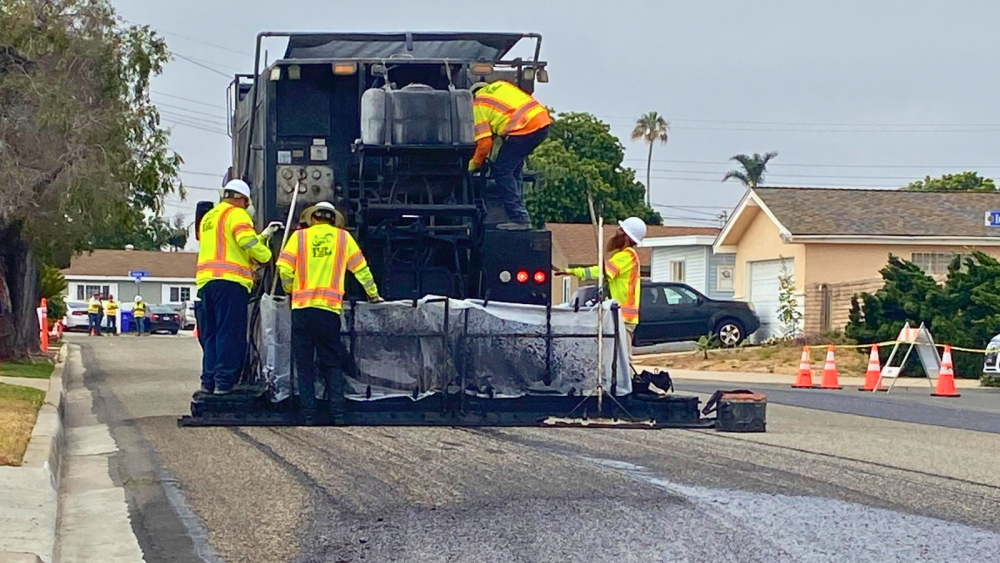City of San Diego to Begin Road Repair Projects in Rancho Peñasquitos, Scripps Ranch, Torrey Highlands, Carmel Mountain Ranch and Fairbanks Ranch

Several City of San Diego communities will soon have improved and safer streets thanks to the continued efforts of the City’s slurry seal program, part of an overall effort to repair and resurface roads citywide. This week, the City will begin resurfacing streets in and around Rancho Peñasquitos, Scripps Ranch, Torrey Highlands, Carmel Mountain Ranch and Fairbanks Ranch communities.
Slurry seal is used to prevent the deterioration of streets, which is vital to improving the overall condition of San Diego’s network of roads. It reduces the need for a more costly asphalt overlay and reconstruction for badly deteriorated streets. Information about different types of street repair can be found on the City’s Transportation webpage.
Slurry seal is often completed in phases over several days or weeks. Multiple slurry seal projects are happening across the City simultaneously and are often coupled with other facilities updates to increase safety and mobility for all modes of transportation.
The latest work as part of Slurry Seal Project 2424 will be completed, weather permitting, through the months of August and September. The following roads will be resurfaced:
· Camino Del Norte
· Bernardo Center Drive
· Calle Juanito
· Andorra Way
· Madrigal Street
· Sorbonne Court
· Castile Way
· Stoney Gate Place
· Shoal Creek Drive
· Tradition Street
· Camino Del Sur
· La Cartera Street
· Rotherham Avenue
· Barrymore Street
· Corte Ganso
· Greenberg Lane
· Greenberg Way
· Torrey Meadows Drive
· Businesspark Avenue
· Sparren Avenue
· Fontanelle Place
· Tradition Street
· Carmel Mountain Road
· Del Mar Heights Road
· San Dieguito Road
Slurry seal is a cost-effective pavement preservation method consisting of asphalt emulsion, sand and rock. This mixture is applied to the street surface at an average thickness of a quarter inch and extends the life of already in-good-condition streets.
Streets are selected for resurfacing through a pavement management system that helps determine when to schedule streets for repair. Each street segment is assigned a Pavement Condition Index (PCI) score based on the pavement’s roughness and cracks.
The PCI score is one of many factors the City uses to schedule road repair. Other factors include traffic volume, mobility and transit connections, maintenance history, other construction projects and available funding. Residents can view the PCI scores for their neighborhood streets and maps of planned street repair by visiting StreetsSD.
The City’s Pavement Management Plan relies on the 2023 Pavement Condition Assessment and summarizes current street conditions in San Diego, while also identifying the funding needs to improve the overall street network.
